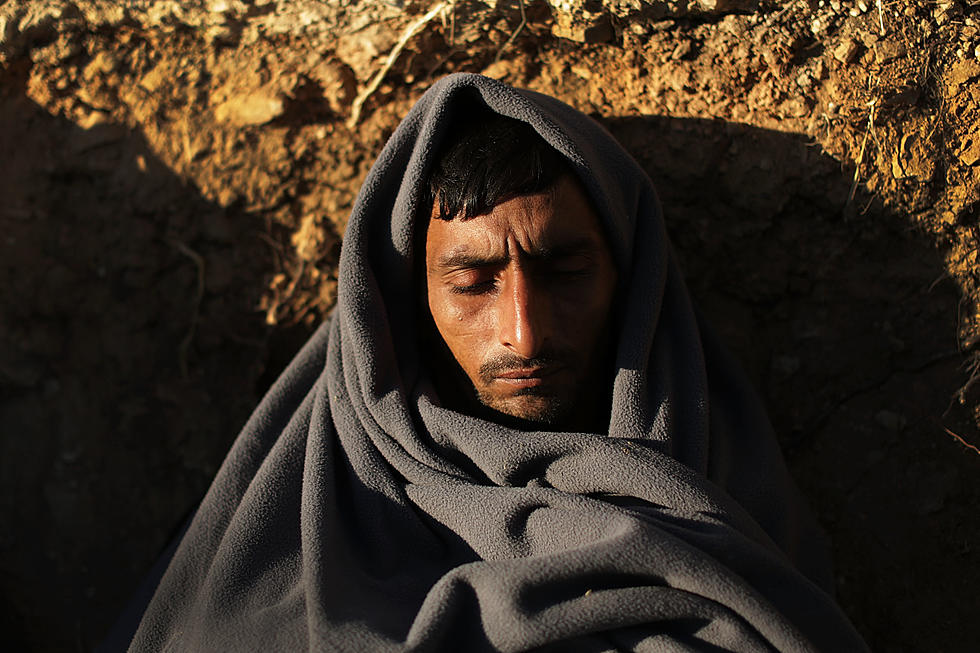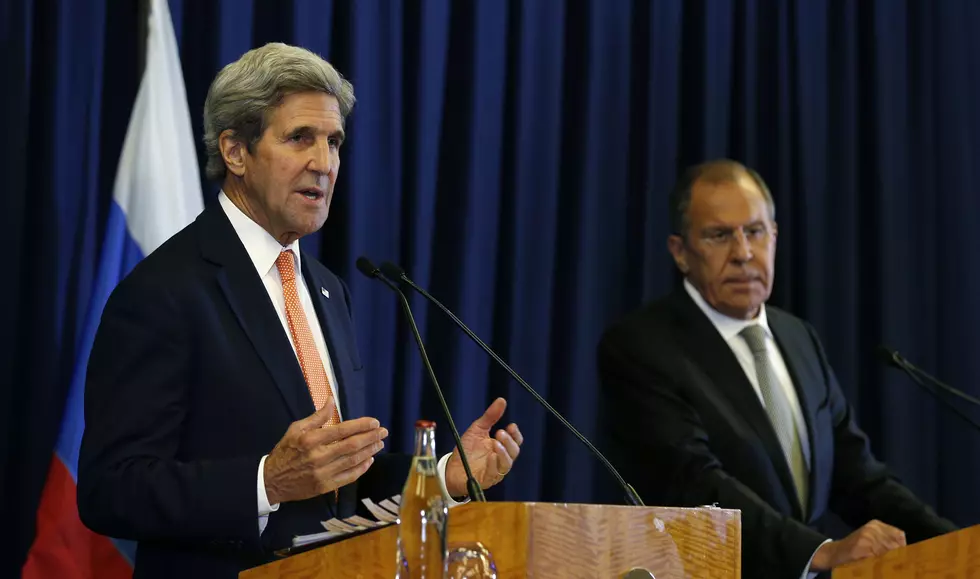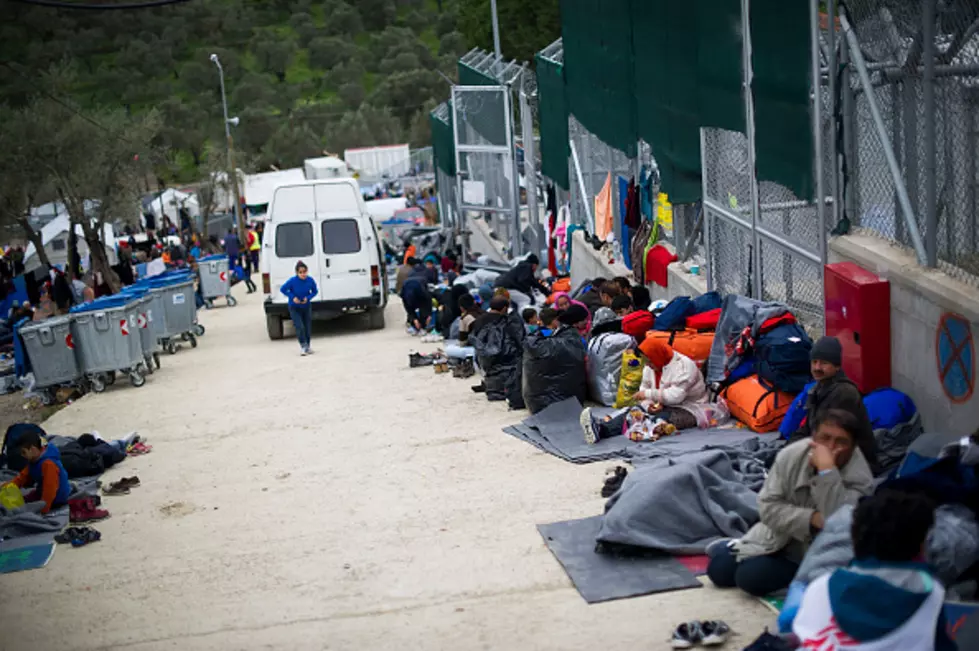
Obama faces complex options in Iraq and Syria
WASHINGTON (AP) -- At the heart of President Barack Obama's quandary over the Islamic State militants is their haven in Syria.
The president may continue helping Iraqi forces try to reverse the group's land grabs in northern Iraq by providing more arms and American military advisers and by using U.S. warplanes to support Iraqi ground operations.
But what if the militants pull back, even partially, into Syria and regroup, as Defense Secretary Chuck Hagel on Thursday predicted they would, followed by a renewed offensive?
"In a sense, you're just sort of back to where you were" before they swept into Iraq, said Robert Ford, a former U.S. ambassador to Syria who quit in February in disillusionment over Obama's unwillingness to arm moderate Syrian rebels.
"I don't see how you can contain the Islamic State over the medium term if you don't address their base of operations in Syria," he said in an interview before an intensified round of U.S. airstrikes this week helped Kurdish and Iraqi forces recapture a Tigris River dam near Mosul that had fallen under control of Islamic State militants.
On the other hand, Obama has been leery of getting drawn into the Syrian civil war, which began in 2011.
More immediately perhaps, Obama faces choices in Iraq, whose sectarian divisions and political dysfunction created the opening that allowed Islamic State fighters to sweep across northern Iraq in June almost unopposed. They captured U.S.-supplied weapons that Iraqi forces left behind when they fled without a fight.
Among his options:
- Sending more troops to Baghdad to strengthen security for the U.S. Embassy, as requested by the State Department. Officials said the number under consideration is fewer than 300. They would be in addition to the several hundred U.S. troops already in the capital to help protect U.S. facilities and personnel.
- Speeding up the arming of Iraqi and Kurdish forces. The administration has been supplying Iraqi government forces with Hellfire missiles, small arms and ammunition, but critics say the pace has been too slow. The administration has been reluctant to openly arm the Kurds, since their militia, known as the peshmerga, is a semi-autonomous force seen in Baghdad as a threat to central government authority.
- Increasing the number and expanding the role of U.S. military advisers who are in Baghdad and the Kurdish capital of Irbil to coordinate with Iraqi forces. They could be given more direct roles in assisting the Iraqis on the ground by embedding with Iraqi or Kurdish units in the field or scouting targets for U.S. airstrikes.
- Committing U.S. ground troops in Iraq. Obama has said repeatedly he would not do this. "We're not the Iraqi military. We're not even the Iraqi air force," Obama said Monday. "I am the commander in chief of the United States armed forces, and Iraq is going to have to ultimately provide for its own security."
- Extending the Iraq air campaign to Islamic State targets in Syria. Stretches of eastern Syria are a sanctuary for the group, also known by the acronyms ISIL or ISIS. The U.S. has warplanes available in the Middle East and Europe that could vastly increase the number and intensity of strikes in eastern Syria if Obama chose.
At a Pentagon news conference Thursday, Hagel appeared to leave the door open to extending U.S. strikes into Syria.
"We're looking at all options," he said when asked whether airstrikes inside Syria were a possibility.
This is hardly the first time Obama has faced options for military action in Syria.
The White House on Wednesday disclosed that Obama authorized a covert mission this summer to rescue American hostages in Syria, including journalist James Foley. The mission failed because the hostages had been moved before the rescuers arrived, officials said. On Tuesday, the militants released a video showing the beheading of Foley and threatened to kill a second hostage if U.S. airstrikes in Iraq continued.
A year ago, Obama put on hold a plan to attack Syria for its alleged use of chemical weapons, arguing that he would not act until Congress had a chance to vote on the use of military force. The vote never came, however, because the government of President Bashar Assad accepted a U.S.-Russian brokered deal to destroy Syria's chemical arsenal.
Army Gen. Martin Dempsey, chairman of the Joint Chiefs of Staff, said Thursday that while it is possible to contain the Islamic State group in the short run, a broader international effort will be required to eventually defeat it.
"Can they be defeated without addressing that part of their organization which resides in Syria? The answer is no," he said. "That will have to be addressed on both sides of what is essentially at this point a nonexistent border. And that will come when we have a coalition in the region that takes on the task of defeating ISIS over time," he added. "ISIS will only truly be defeated when it's rejected by the 20 million disenfranchised Sunni that happen to reside between Damascus and Baghdad."
More From New Jersey 101.5 FM









